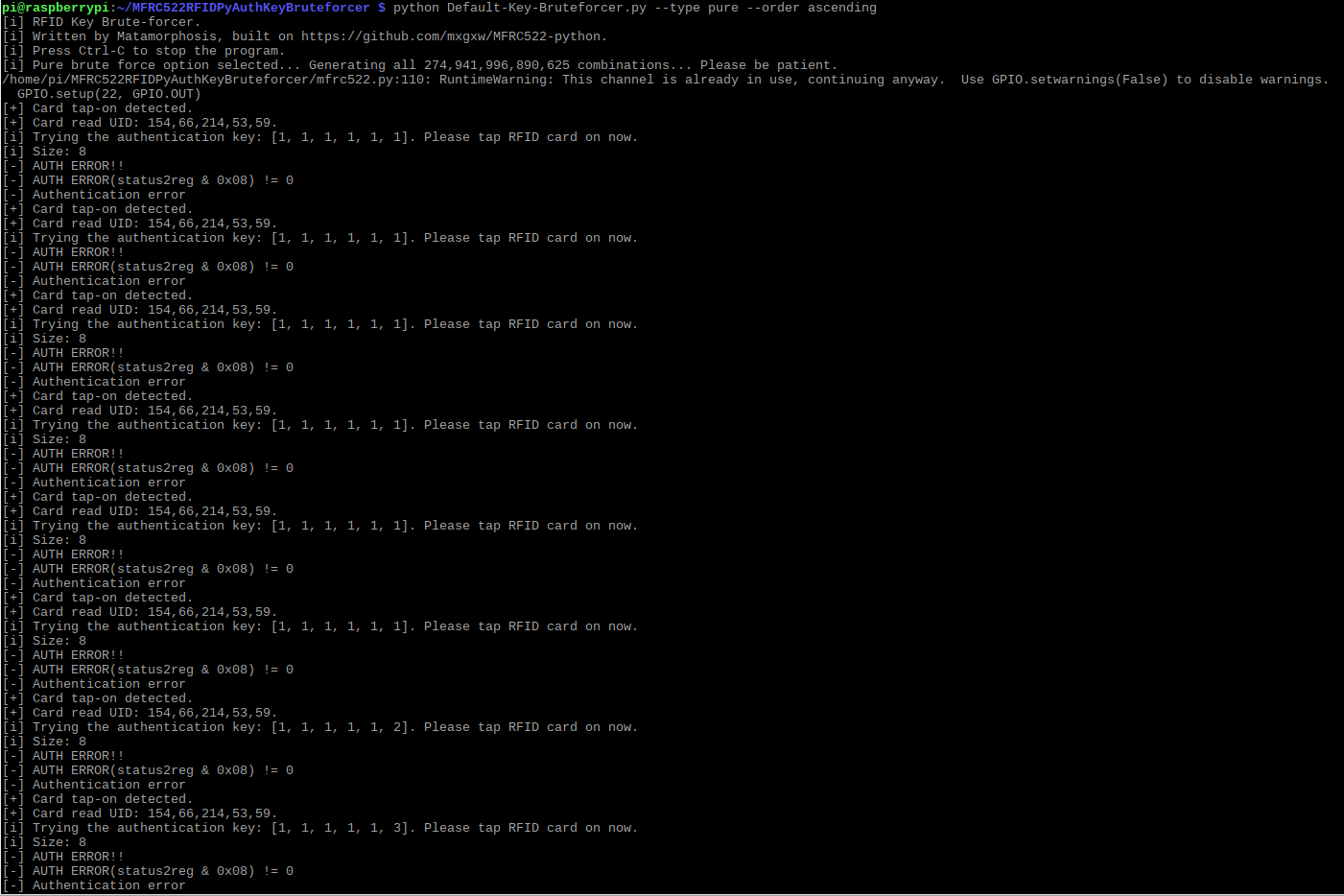Just a simple RFID authentication key brute-force program written in python, as all the ones I found were written in C. This is much more user friendly
Required Hardware:
- Mifare RC522 RFID Reader
- Raspberry Pi, or a controller with GPIO pins ideally running some form of debian linux.
Usage:
Add any keys you wish to test to the keys.txt file. They must be in the following format with 6 hex chars, seperated by commas exclusive of any \x or 0x at the front: ff,ff,ff,ff,ff,ff
Make sure to have an Mifare RC522 RFID Reader setup and running in order to use this software. This software is built on top of https://github.com/mxgxw/MFRC522-python.
To connect the reader to a Raspberry Pi, refer to the following wiring diagram: https://cdn.pimylifeup.com/wp-content/uploads/2017/10/RFID-Diagram.png
In the Raspberry Pi config, make sure to enable the SPI Interface
Lastly, clone SPI-Py from the following repository: https://github.com/lthiery/SPI-Py
- It is imperative you rollback to the following to the following repository:
- root@linux:/Downloads/SPI-Py# git checkout 8cce26b9ee6e69eb041e9d5665944b88688fca68
- Then Install with the following command:
- root@linux:/Downloads/SPI-Py# python setup.py install
As can be seen in the latest commit of the main program, a pure brute-force option is now available which runs through all 274,941,996,890,625, calculated by (255^6), possibililities. This option is not recommended for just one device such as a raspberry pi, as it will take extremely long to crack. However, a more powerful computer may be able to run through these options much quicker. There are two options within the pure bruteforce option: ascending and descending.
- Ascending: Increases from 0,0,0,0,0,0 to 255,255,255,255,255,255
- Descending: Decreases from 255,255,255,255,255,255 to 0,0,0,0,0,0
Lastly, if you want proof everything is working correctly, I recommend using a blank card with the default authentication key, which is 255,255,255,255,255,255. Choose the descending pure brute force option, or use the file option and provide a file with the default key. You should get a response like the following:
Feel free to pull this code, and get in running with other RFID reader libraries, I'd love to turn this into an open-source mass-RFID cracker.

